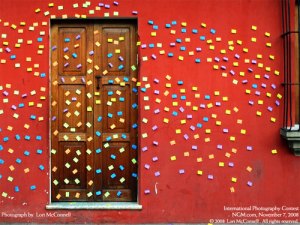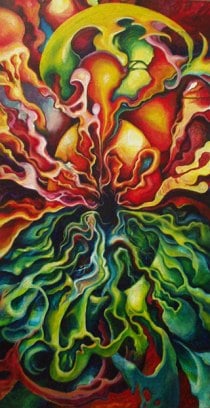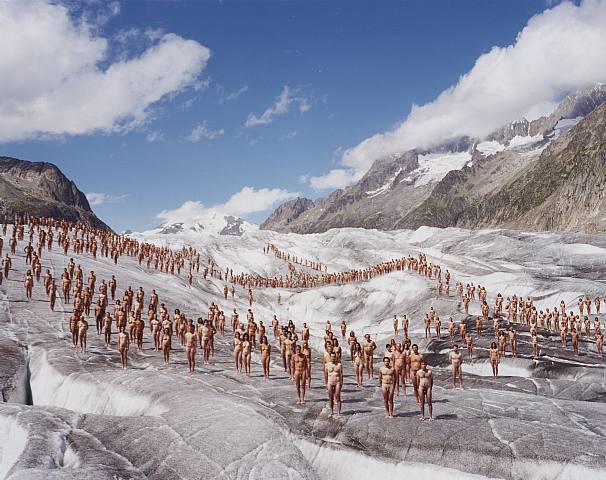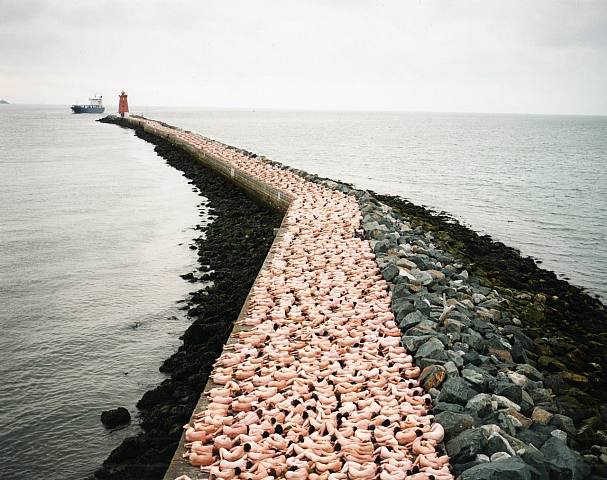
Wednesday, November 17, 2010
The Giller prize was recently won by a relatively unknown author, Johanna Skibsrud, for her book The Sentimentalists. This book had been published by a small publisher based in Kentville, N.S. named Gaspereau Press. There has been quite a hubbub about the inaccessibility of this book. Gaspereau Press is a small publisher and was proving to be unable to keep up with the demand from the author's new-found popularity. It was also recently announced by Gaspereau that a deal has been made with other publishers to help meet the demand: Vancouver and Toronto's Douglas & McIntyre and Manitoba's Friesens. The unavailability caused some uproar:
Book me: I want my Skibsrud and I want it now
Author's angst grows over unavailability of Giller winner
Giller is enough to drive you to Gasperation
Deal struck to meet surge in demand for Giller-winning book
What originally struck me and left me feeling indignation has since transmuted somewhat into quasi-resignation. Gaspereau Press is a particular favourite of mine: it has published incredibly beautiful books. It is a main publisher of works by poet-philosopher Jan Zwicky, whose works and whose beautifully crafted books impress and attract me.



None of these images quite do justice to the beauty of holding a book by Gaspereau Press in your hands. The paper quality, the printing methods, the font selection... They are masterfully created.
I worry about the enormous appetite that has been expressed with the need to get the book - because it was a prize winner - and I worry about the subtext that Gaspereau is holding back from the readers' demands and that it should 'modernize' or have prepared a strategy to get the book out as fast as possible to as many people as possible.
Although one supposes that it is great that books elicit this kind of response, one needs to wonder what is going on here. Is it actually all that great that a prize nominates a book for the banquet table that is mass consumption? Who are these readers who need this book right now? and why?
As in the Globe and Mail:
Now she openly admits to being “concerned” about the partners’ decision to continue hand-printing her prize-winning first novel at the leisurely rate of 1,000 books a week.
“Every writer at any stage of your career – prizes or no prizes, no matter what – you want as many readers as you can get,” she said. “This is a tremendous opportunity for that.”
A recurring implication it seems to me is that the book's 'content' must be divorced from its 'form' (its medium) - in this case, as created by Gaspereau. This 'liberation' - that how it is 'packaged' (or shall we say 'presented'?) is on some level irrelevant - is in fact carried out in the name of enabling consumption. The assumption is that it has been freed from a reactionary press to enter the market of general exchange.
But on what grounds can we (or I) deny this liberation? On what grounds can we offer support for an 'exclusive/aristocratic/reactionary' press, for example? On what grounds can we question these notions of liberation, expediency, and desire?
~ ~ ~ ~ ~
2. My concerns with the above: is this merely (or necessarily) a rejection of some Marxism and post-Marxism and a call to what Zizek calls 'capitalism with a human face'?...
Book me: I want my Skibsrud and I want it now
Author's angst grows over unavailability of Giller winner
Giller is enough to drive you to Gasperation
Deal struck to meet surge in demand for Giller-winning book
What originally struck me and left me feeling indignation has since transmuted somewhat into quasi-resignation. Gaspereau Press is a particular favourite of mine: it has published incredibly beautiful books. It is a main publisher of works by poet-philosopher Jan Zwicky, whose works and whose beautifully crafted books impress and attract me.



None of these images quite do justice to the beauty of holding a book by Gaspereau Press in your hands. The paper quality, the printing methods, the font selection... They are masterfully created.
I worry about the enormous appetite that has been expressed with the need to get the book - because it was a prize winner - and I worry about the subtext that Gaspereau is holding back from the readers' demands and that it should 'modernize' or have prepared a strategy to get the book out as fast as possible to as many people as possible.
Although one supposes that it is great that books elicit this kind of response, one needs to wonder what is going on here. Is it actually all that great that a prize nominates a book for the banquet table that is mass consumption? Who are these readers who need this book right now? and why?
As in the Globe and Mail:
Now she openly admits to being “concerned” about the partners’ decision to continue hand-printing her prize-winning first novel at the leisurely rate of 1,000 books a week.
“Every writer at any stage of your career – prizes or no prizes, no matter what – you want as many readers as you can get,” she said. “This is a tremendous opportunity for that.”
A recurring implication it seems to me is that the book's 'content' must be divorced from its 'form' (its medium) - in this case, as created by Gaspereau. This 'liberation' - that how it is 'packaged' (or shall we say 'presented'?) is on some level irrelevant - is in fact carried out in the name of enabling consumption. The assumption is that it has been freed from a reactionary press to enter the market of general exchange.
But on what grounds can we (or I) deny this liberation? On what grounds can we offer support for an 'exclusive/aristocratic/reactionary' press, for example? On what grounds can we question these notions of liberation, expediency, and desire?
~ ~ ~ ~ ~
2. My concerns with the above: is this merely (or necessarily) a rejection of some Marxism and post-Marxism and a call to what Zizek calls 'capitalism with a human face'?...
Sunday, November 14, 2010
Saturday, November 13, 2010
And what is this?
I put my question to the earth, and it replied,"I am not he";
I questioned everything it held, and they confessed the same.
I questioned the sea and the great deep,
and the teeming live creatures that crawl,
and they replied,
"We are not God; seek higher."
I questioned the gusty winds,
and every breeze with all its flying creatures told me,
"Anaximenes was wrong: I am not God."
To the sky I put the question, to sun, moon, stars,
but they denied me: "We are not the God you seek."
And to all things which stood around the portals of my flesh I said,
"Tell me of my God.
You are not he, but tell me something of him."
Then they lifted up their mighty voices and cried,
"He made us."
My questioning was my attentive spirit,
and their reply, their beauty.
-- Augustine's Confessions, Book X
I put my question to the earth, and it replied,"I am not he";
I questioned everything it held, and they confessed the same.
I questioned the sea and the great deep,
and the teeming live creatures that crawl,
and they replied,
"We are not God; seek higher."
I questioned the gusty winds,
and every breeze with all its flying creatures told me,
"Anaximenes was wrong: I am not God."
To the sky I put the question, to sun, moon, stars,
but they denied me: "We are not the God you seek."
And to all things which stood around the portals of my flesh I said,
"Tell me of my God.
You are not he, but tell me something of him."
Then they lifted up their mighty voices and cried,
"He made us."
My questioning was my attentive spirit,
and their reply, their beauty.
-- Augustine's Confessions, Book X
Friday, November 5, 2010
I come a little late with this, but from an article on the French pension reform protests:
Strikes by oil refinery workers have sparked fuel shortages that forced at least 1,000 gas stations to be shuttered. Other stations saw large crowds. At an Esso station on the southeast edge of Paris on Tuesday morning, the line snaked along a city block and some drivers stood with canisters to stock gasoline in case of shortages.
Mr. Sarkozy said such shortages "cannot exist in a democracy."
"There are people who want to work, the immense majority, and they cannot be deprived of gasoline," he insisted.
But I beg to differ: such shortages can easily exist in a democracy, unless Mr. Sarkozy has - understandably - forgotten the distinctions between capitalism (oil economy) and democracy.
from http://www.theglobeandmail.com/report-on-business/french-pension-protests-take-violent-turn/article1763061/

Strikes by oil refinery workers have sparked fuel shortages that forced at least 1,000 gas stations to be shuttered. Other stations saw large crowds. At an Esso station on the southeast edge of Paris on Tuesday morning, the line snaked along a city block and some drivers stood with canisters to stock gasoline in case of shortages.
Mr. Sarkozy said such shortages "cannot exist in a democracy."
"There are people who want to work, the immense majority, and they cannot be deprived of gasoline," he insisted.
But I beg to differ: such shortages can easily exist in a democracy, unless Mr. Sarkozy has - understandably - forgotten the distinctions between capitalism (oil economy) and democracy.
from http://www.theglobeandmail.com/report-on-business/french-pension-protests-take-violent-turn/article1763061/

Sunday, October 17, 2010
Monday, October 4, 2010
Monday, August 16, 2010
Monday, June 7, 2010
Friday, May 7, 2010
Both are unofficial.
Another good one is the unofficial video for Bloodstone: see my previous post here.
Wednesday, May 5, 2010
1. Vegetation quickly occupies the available space. Animals make it a field of slaughter and extend its possibilities in this way; they themselves develop more slowly. In this respect, the wild beast is at the summit: Its continual depredations of depredators represent an immense squandering of energy. William Blake asked the tiger: "In what distant deeps or skies burned the fire of thine eyes?" What struck him in this way was the cruel pressure, at the limits of possibility, the tiger's immense power of consumption of life. In the general effervescence of life, the tiger is a point of extreme indandescence. And this incandescence did in fact burn first in the remote depths of the sky, in the sun's consumption.
- from The Accursed Share by Georges Bataille.
- from The Accursed Share by Georges Bataille.
Saturday, April 10, 2010
1. "...the conception of the visible [for Foucault] seems pictorial, close to Delaunay, for whom light was a form that created its own forms and movements. Delaunay used to say that Cézanne broke the fruit-bowl, and we should not try to stick it back together again, like the Cubists."
- from Deleuze's Foucault, a remarkable thing attributed to Delaunay about the fruit-bowl: I don't know of the context at all, but it's a striking comment.
- from Deleuze's Foucault, a remarkable thing attributed to Delaunay about the fruit-bowl: I don't know of the context at all, but it's a striking comment.
Friday, March 19, 2010
Thursday, March 18, 2010
Sunday, March 7, 2010
Thursday, March 4, 2010
Thursday, February 18, 2010
Wednesday, February 17, 2010
1. Timber Timbre:
http://www.myspace.com/timbertimbre

~ ~ ~ ~ ~
2. It seems that I looked this up once on my own and didn't post it here as I thought I had, so here we go (excerpts from OED):
1. regard: look, glance, gaze; worry, apprehension, fear; reflection, circumspection, caution; controller, administrator, governor; remuneration, payment; reward, payment
c. In pl. Used as a formula requesting that the person addressed (in speech or writing) convey the expression of the speaker's or writer's affection to a third person (esp. in give my regards to---, send one's regards), or to express friendliness or goodwill at the end of a letter or other written communication. Cf. LOVE n.1 Phrases 4.
2. reward: I. 1. Regard, consideration, heed. In phrases with have, take, or give. Obs.
3. a. Estimation, worth. Obs. rare.
c. Remuneration (regular or extra). Obs.
3. award: look, aspect, attention, consideration, judicial decision, arbitrament
1. A decision after examination, a judicial sentence, esp. that of an arbitrator or umpire; the document embodying it.
2. a. That which is awarded or assigned, as payment, penalty, etc., by the terms of the judge's sentence or arbitrator's decision.
b. Something conferred as a reward for merit; a prize, reward, honour.
3. Keeping, care, custody, wardship. (Cf. AWARD v.2 and WARD n.) Obs.
4. ward: guard, watch, observation
OTeut. *wardo, f. *ward- (see prec.), whence also ON. varoe wk. masc., varoa wk. fem., cairn, heap of stones. The Teut. word was adopted in Rom.: OF. warde (north-eastern), guarde, garde (whence GUARD n.)
5. guard: [a. or ad. F. garde, earlier also guarde (= It., Sp. guarda):---Rom. *guarda, a. OTeut. *wardâ. (Cf. WARD.)]
1. a. Keeping, guardianship, custody, ward. to take guard: to take care. Obs.
I don't know exactly what to make of all this: but there seems to be a thread of renumeration, surveillance, judgement, and observation running through these terms.
Add to this, if you know it, Nietzsche's "Genealogy of Morals", or Mauss's "Gift, Gift" (with reference to which I make this next point):
gift: OHG. gift fem., gift, poison
http://www.myspace.com/timbertimbre

~ ~ ~ ~ ~
2. It seems that I looked this up once on my own and didn't post it here as I thought I had, so here we go (excerpts from OED):
1. regard: look, glance, gaze; worry, apprehension, fear; reflection, circumspection, caution; controller, administrator, governor; remuneration, payment; reward, payment
c. In pl. Used as a formula requesting that the person addressed (in speech or writing) convey the expression of the speaker's or writer's affection to a third person (esp. in give my regards to---, send one's regards), or to express friendliness or goodwill at the end of a letter or other written communication. Cf. LOVE n.1 Phrases 4.
2. reward: I. 1. Regard, consideration, heed. In phrases with have, take, or give. Obs.
3. a. Estimation, worth. Obs. rare.
c. Remuneration (regular or extra). Obs.
3. award: look, aspect, attention, consideration, judicial decision, arbitrament
1. A decision after examination, a judicial sentence, esp. that of an arbitrator or umpire; the document embodying it.
2. a. That which is awarded or assigned, as payment, penalty, etc., by the terms of the judge's sentence or arbitrator's decision.
b. Something conferred as a reward for merit; a prize, reward, honour.
3. Keeping, care, custody, wardship. (Cf. AWARD v.2 and WARD n.) Obs.
4. ward: guard, watch, observation
OTeut. *wardo, f. *ward- (see prec.), whence also ON. varoe wk. masc., varoa wk. fem., cairn, heap of stones. The Teut. word was adopted in Rom.: OF. warde (north-eastern), guarde, garde (whence GUARD n.)
5. guard: [a. or ad. F. garde, earlier also guarde (= It., Sp. guarda):---Rom. *guarda, a. OTeut. *wardâ. (Cf. WARD.)]
1. a. Keeping, guardianship, custody, ward. to take guard: to take care. Obs.
I don't know exactly what to make of all this: but there seems to be a thread of renumeration, surveillance, judgement, and observation running through these terms.
Add to this, if you know it, Nietzsche's "Genealogy of Morals", or Mauss's "Gift, Gift" (with reference to which I make this next point):
gift: OHG. gift fem., gift, poison
Saturday, February 13, 2010
Tuesday, January 26, 2010
Thursday, January 21, 2010

1. This cut-paper stuff is so cool.
(Both this and the last one I posted are from www.gamil.com, an interesting site.)
Tuesday, January 19, 2010
1. Certainly not as cool as the last post, I did find this interesting (from OED -- I was looking up with regards to both discipline as in academic area of study and discipline as in punishment):
[a. F. discipline (OF. also dece-, dese-, desce-, 11th c. in Hatz.-Darm.), ad. L. disciplina instruction of disciples, tuition, for discipulina, f. discipulus pupil, DISCIPLE.
Etymologically, discipline, as pertaining to the disciple or scholar, is antithetical to doctrine, the property of the doctor or teacher; hence, in the history of the words, doctrine is more concerned with abstract theory, and discipline with practice or exercise.]
[a. F. discipline (OF. also dece-, dese-, desce-, 11th c. in Hatz.-Darm.), ad. L. disciplina instruction of disciples, tuition, for discipulina, f. discipulus pupil, DISCIPLE.
Etymologically, discipline, as pertaining to the disciple or scholar, is antithetical to doctrine, the property of the doctor or teacher; hence, in the history of the words, doctrine is more concerned with abstract theory, and discipline with practice or exercise.]
Sunday, January 17, 2010
Saturday, January 16, 2010
Subscribe to:
Posts (Atom)







